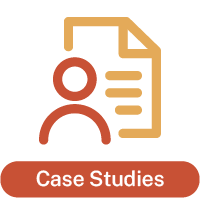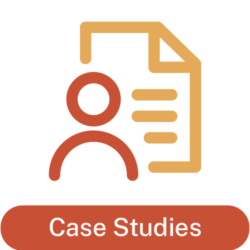This multinational manufacturing company operationalized data governance and implemented Collibra to improve its governance capabilities processes, business decision-making and the roles and responsibilities needed for a sustainable governance program.
About
Industry: Manufacturing
Background: Our manufacturing client has more than 60,000 employees with company-operated stores and facilities located in the United States, Canada, the Caribbean and Latin America, with distributors and construction, industrial, packaging and transportation clients located across the globe.
Engagement Type
- Initial engagement was a 16-week data governance (DG) assessment, including DG operating model, strategy and roadmap. Subsequent engagements included operationalizing DG and a Collibra implementation for metadata and data quality.
- Operationalizing governance included:
- Onboarding and DG education for governance office leadership and staff
- Establishing and managing operating model governing bodies
- Establishing data stewardship, metadata management (MetaDM), master data management (MDM) and data quality management (DQM) practices
- Collaborating with an MDM implementation vendor to ensure a business-led, IT-enabled implementation of customer MDM
Opportunity Areas
- Project Goals
- Create a framework to “think strategically and act locally,” so the needs of both the enterprise and the business units are met.
- Formalize informal processes and accountabilities to make a sustainable impact, using a “think strategically and act locally” strategy that meets the needs of the enterprise and individual business units.
- To help accelerate their progress with governance, the client engaged First San Francisco Partners (FSFP) to assess and provide recommendations to significantly improve its agile DG capabilities and institute governance processes, decision-making and roles and responsibilities for a sustainable program.
- Project Objectives
- A plan to implement an agile enterprise DG service offering to initially support analytics, with the extensibility to support other initiatives in the future.
- Articulation of governance requirements for people, data and processes to support and sustain high-quality data management processes.
- Recommended agile DG operating model to drive improved accountability and engagement across groups.
- Roadmap with sufficient detail to point out the necessary people and process activities and steps to implement a sustainable governance program.
- Education and a set of templates that the client can use to support ongoing DG change management to support the rollout of identified use cases.
Engagement Snapshot
- Phase 1: Governance assessment, operating model, strategy and roadmap.
- Phase 2: Begin execution of roadmap; staff, onboard and provide education for governance operating model roles, provide guidance and best practices in establishing enterprise information management and related capabilities; and MetaDM program strategy.
- Phase 3: Establish data stewardship; advise in the development of DG processes for intake, demand management, identification and documentation of critical data, support master data modeling and business input for master data implementation; provide guidance and best practices in establishing a formal data literacy program; and organizational change management (OCM) planning, education and execution for DG program.
- Phase 4: Provide best practices, education and support to establish a formal data quality program; identify and document detailed initial use cases for MetaDM tool implementation; advise in the development of DG processes needed to support MetaDM, including prioritizing metadata for ingestion and documenting business metadata with data stewards and ongoing support of MDM implementation.
- Phase 5: Collibra implementation for MetaDM and DQM.
Impact
- Phase 1: Stakeholder and leadership engagement and commitment for establishing DG.
- Phase 2: Knowledge, skills, best practices and templates to establish and lead governance and related practices/capabilities.
- Phase 3: Established processes and approaches for business-led, IT-enabled governance.
- Phase 4: Collaborative, business-led, IT-enabled design and implementation of practices needed to support customer MDM.
- Phase 5: Collibra implementation for MetaDM and DQM.
- Overall: Comprehensive enterprise information management organizational design, including OCM to support reorganization.


